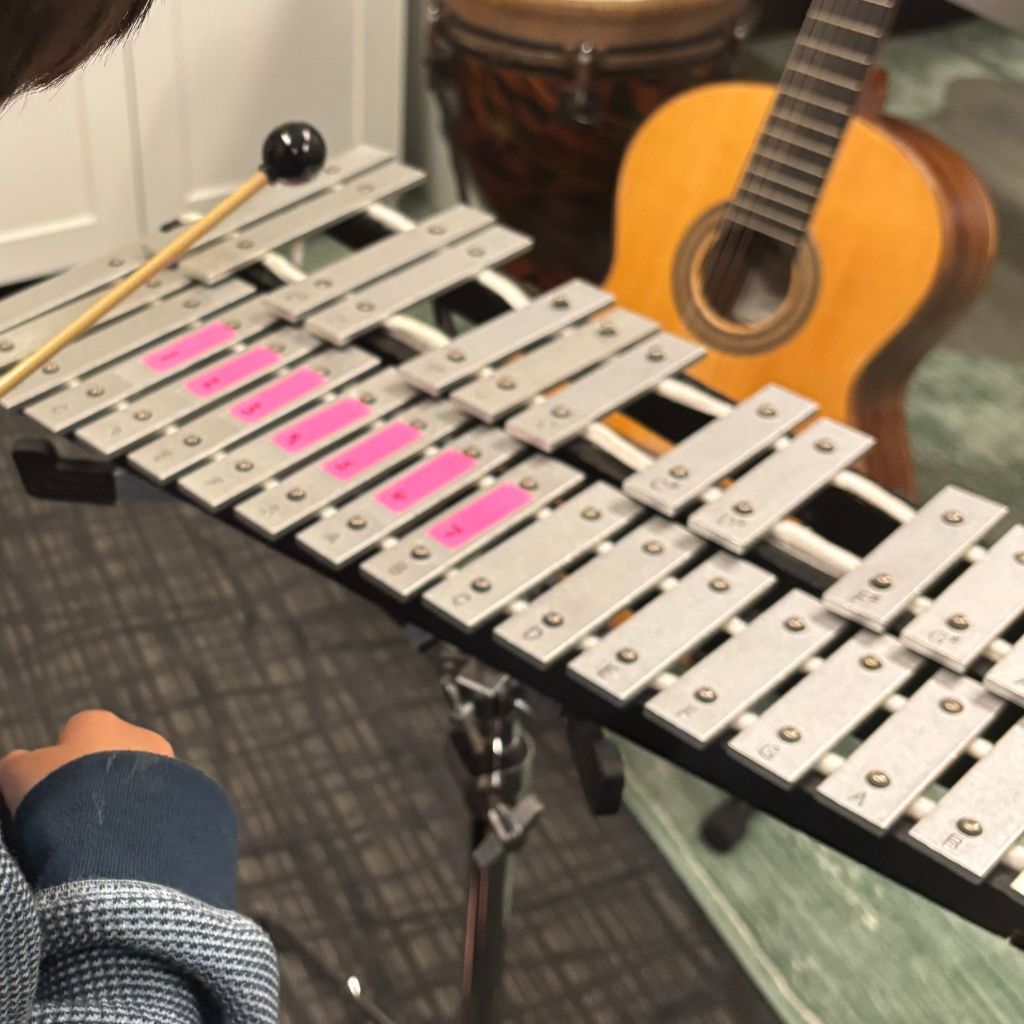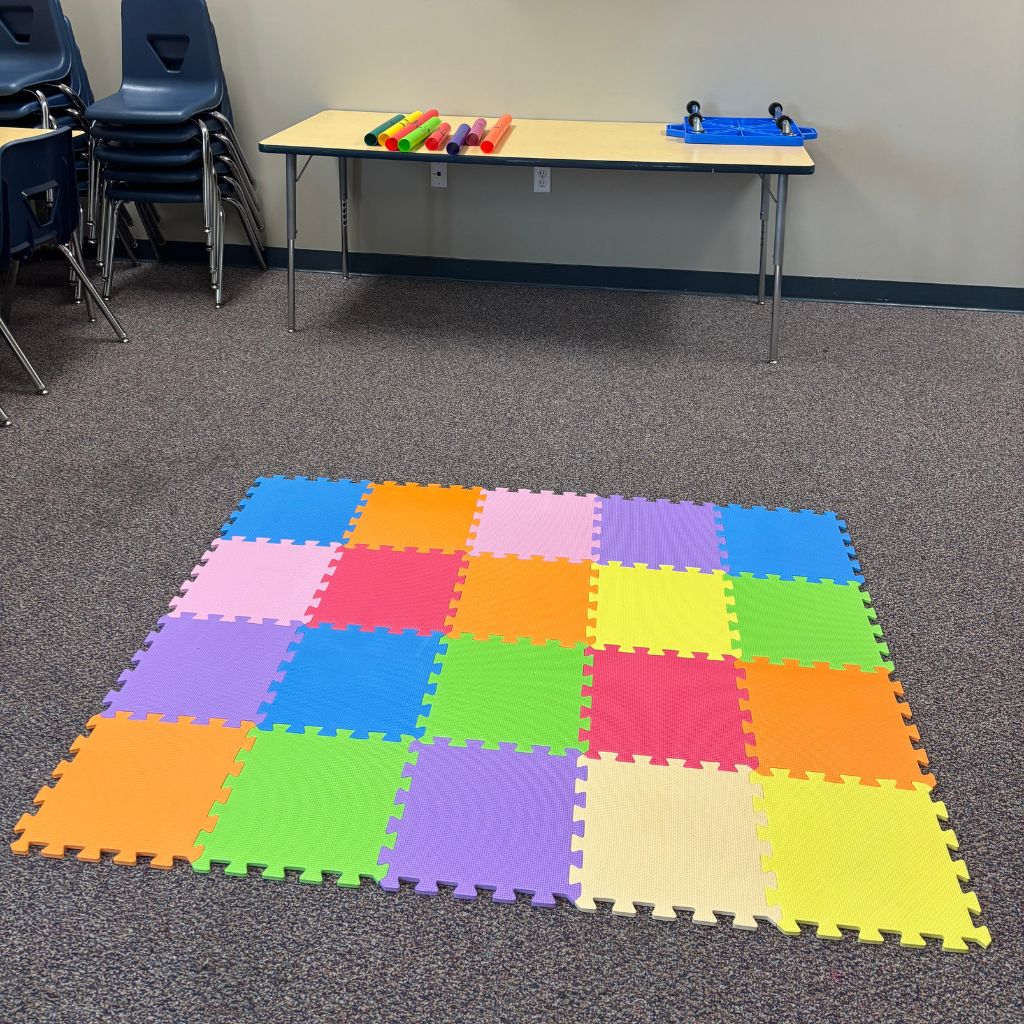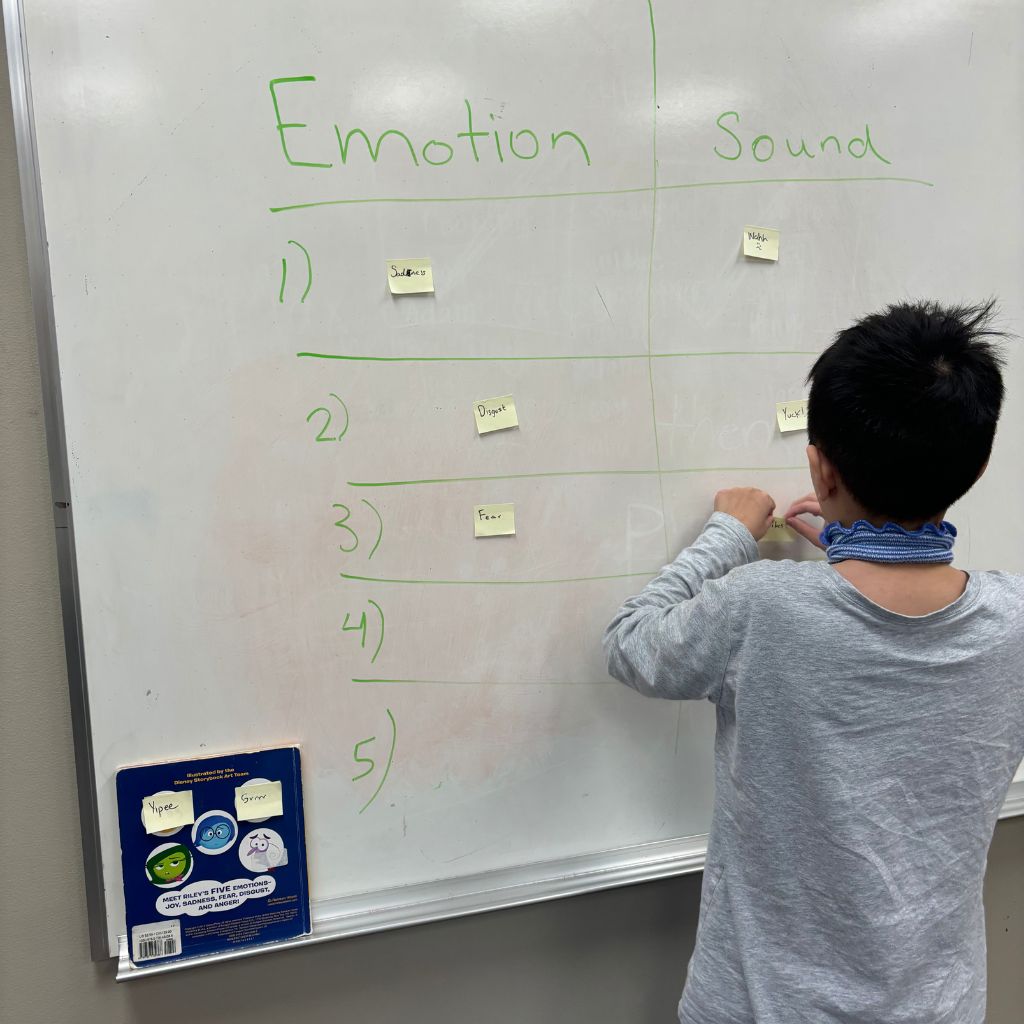Intellectual and Developmental Disabilities
Support for All Ages and Abilities
Discover how our neuro-affirming music therapy sessions supports language, behavior, and development through fun, evidence-based sessions for children, teens, and adults of all abilities.
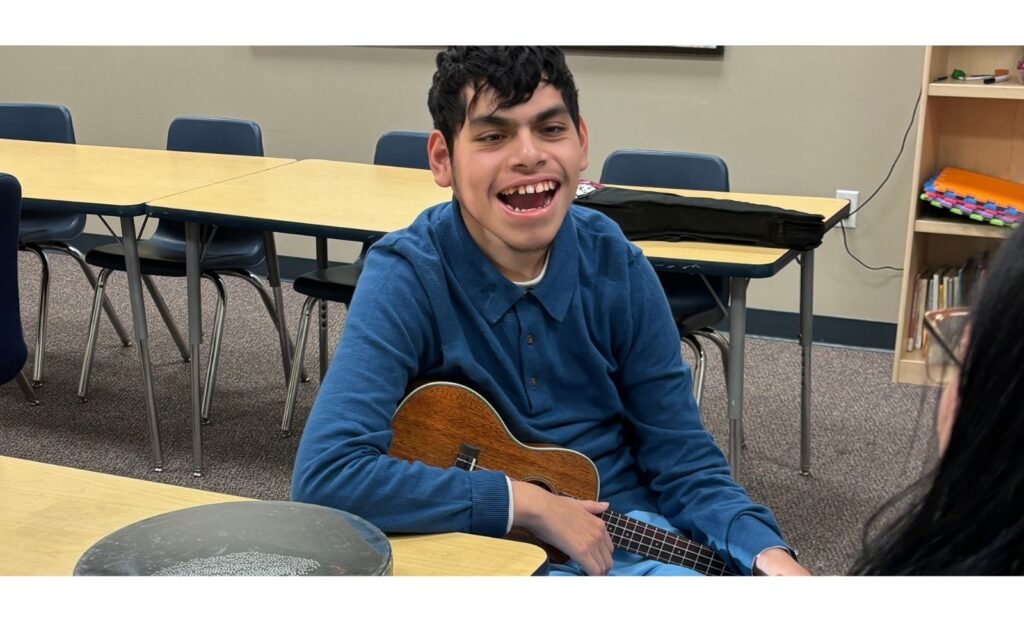
Unlock Your Child’s Potential Through Music
You want your child to feel confident, connected, and supported — but finding the right environment that nurtures their unique strengths can feel overwhelming.
At OC Music Services, we understand that every individual deserves a place where they can thrive at their own pace. Our board-certified music therapists use therapeutic music experiences to help individuals of all ages and abilities learn self-regulation strategies, build communication skills, social connections, emotional expression, and self-esteem — all within a supportive, joyful setting.
Music therapy is more than just making music — it’s a research-based and compassionate approach to growth. Whether your child is working on language, social interaction, motor skills, or emotional regulation, we tailor each session to their needs and celebrate every step forward.
You’re not alone in this journey. Let us walk alongside you and give your child the tools, encouragement, and environment they deserve.
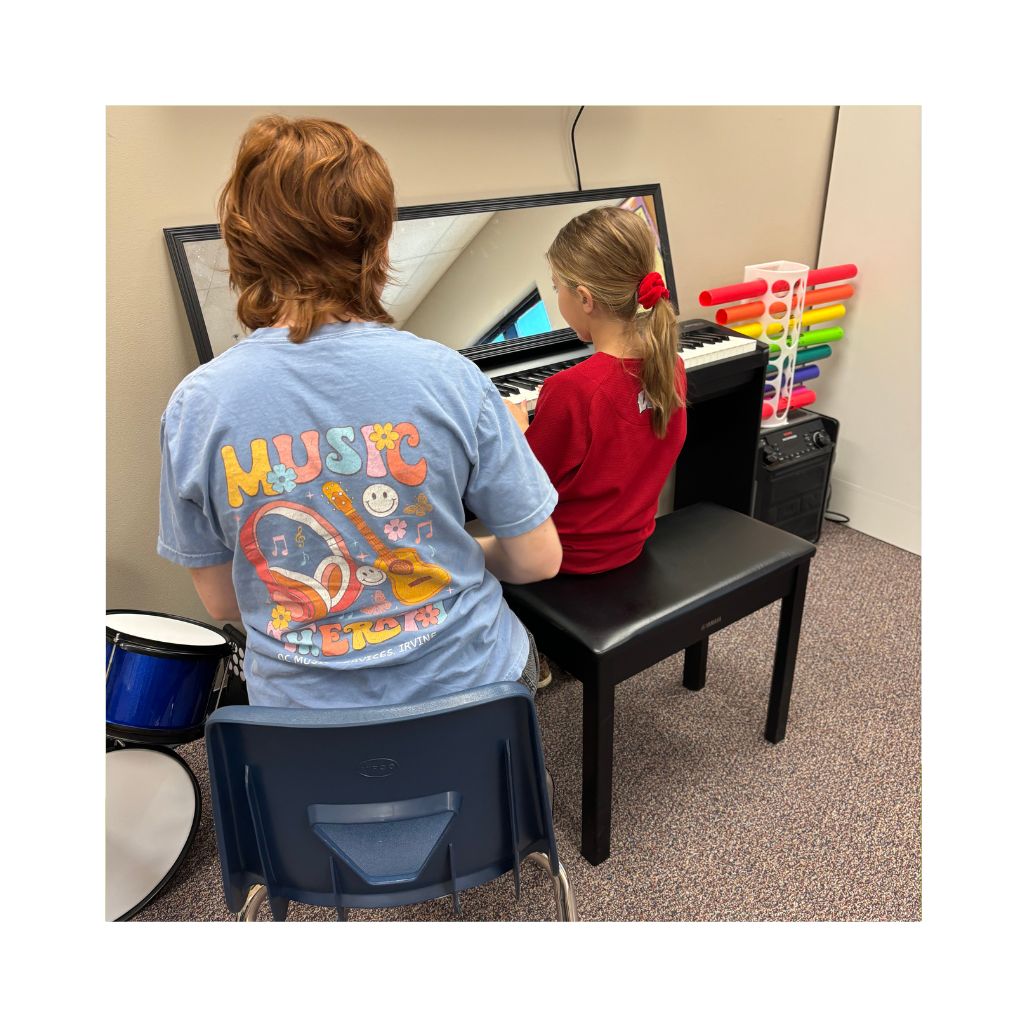
Led by our board-certified music therapists, each session blends structured musical activities with evidence-based interventions tailored to your child’s needs. Through singing, instrument play, movement, and rhythm games, children begin to:
Improve language and listening skills
Build social connections
Regulate emotions and behavior
Strengthen fine and gross motor coordination
Our sessions are fun, family-centered, and rooted in developmental goals—making learning feel safe and joyful.
Our program is ideal for individuals who:
Are developing or working on speech, language, or communication skills
Have difficulty with focus, attention, or social connections
Experience sensory processing differences
Are on the autism spectrum, have ADHD, or other intellectual and developmental disabilities
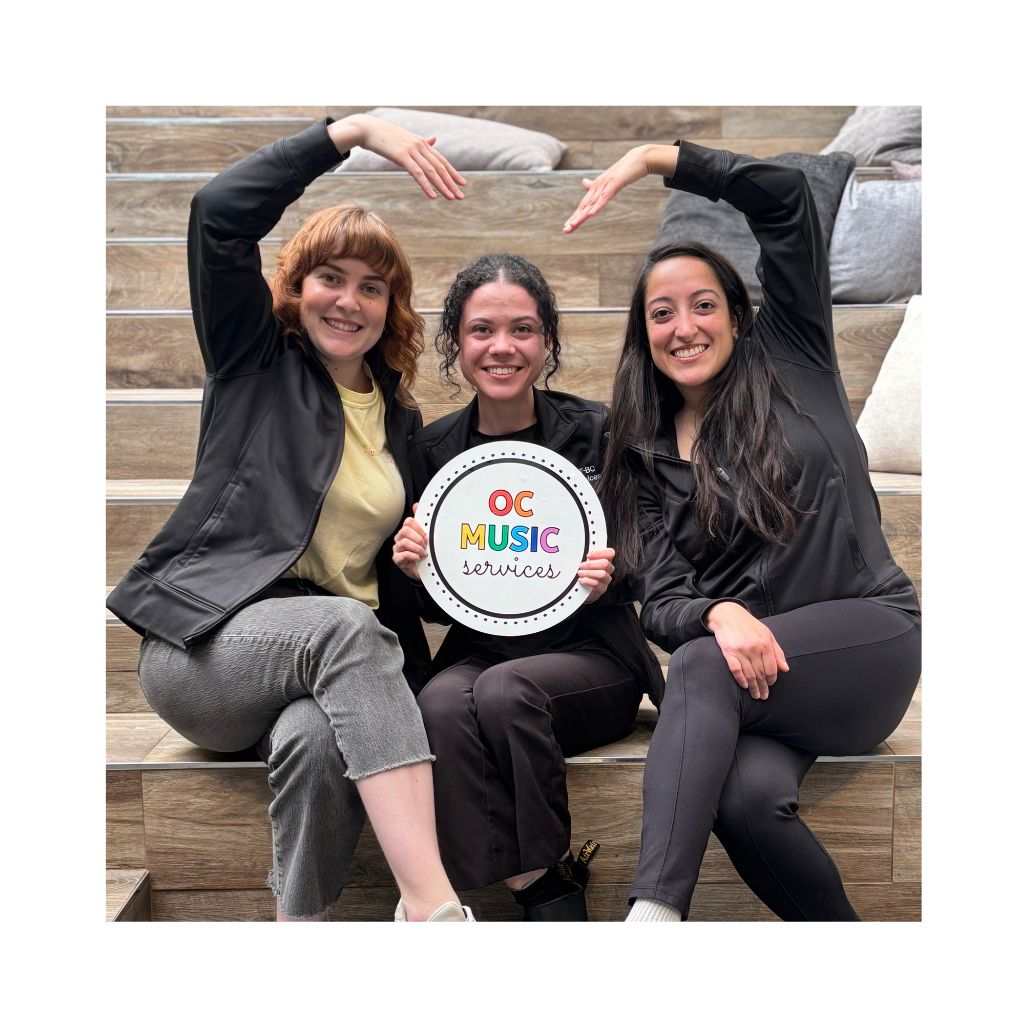
FAQs
Do I need a referral to start?
No referral is needed! Parents and caregivers can contact us directly. However, we do collaborate with pediatricians, speech therapists, regional centers, and early intervention providers.
How is music therapy different from a music class?
Unlike a traditional music class, music therapy focuses on therapeutic goals such as communication, behavior, attention, or emotional regulation. Every activity is designed from research based and play strategies to meet your child’s needs.
Where are sessions held?
Sessions are held at our inclusive studio in Irvine, California, conveniently located for families across Orange County. * We are also available to hold sessions at your child’s home or school based on travel and time availability
What if I would like my child to learn an instrument?
If the primarily goal in sessions is musical (playing an instrument, learning musical concepts and skills) a music lesson will be recommended. OCMS offers adapted lessons for students who could benefit of additional supports. Lessons may require prerequisite skills such as sustained attention, following directions, and self-regulation skills. Music therapy may be a good first step to help your child transition to lessons or adapted lessons.
Here’s how to get started:
Contact us using the form below or call (949) 591-3875
Schedule assessment session
Meet your therapist and begin your journey!
Whether your child has a diagnosed developmental delay or is growing at their own unique rhythm, music therapy offers a compassionate and therapeutic way to nurture their growth.
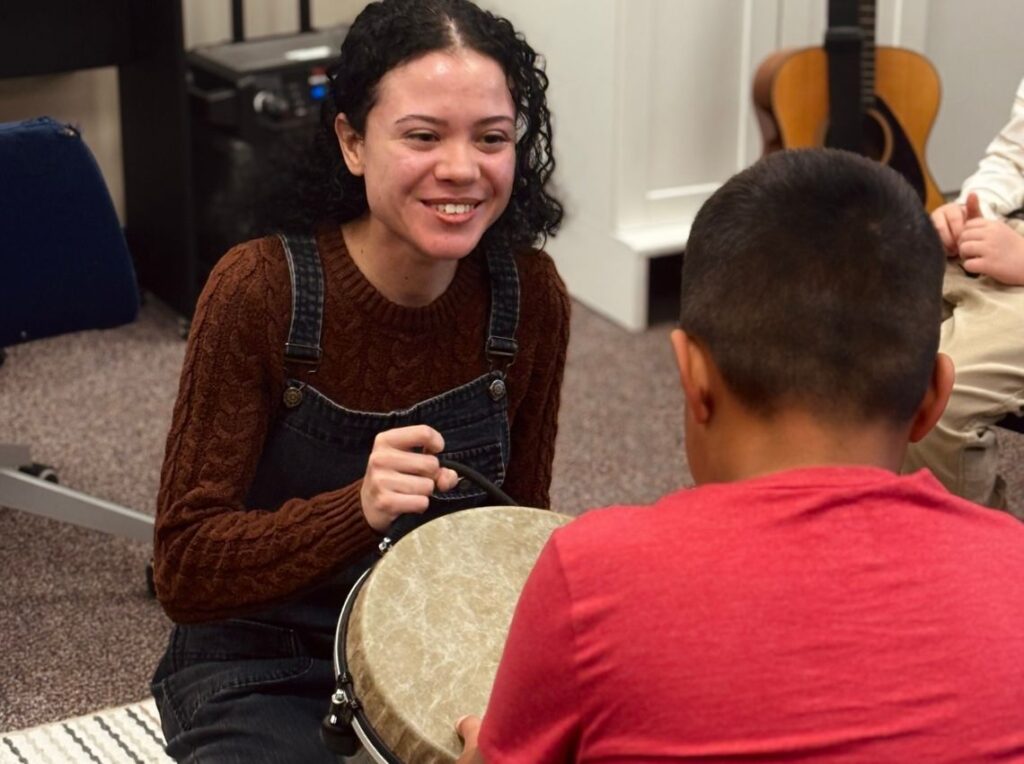
Support your child or loved one’s journey by helping them build essential skills and confidence in a fun, welcoming, and developmentally supportive environment.
Let's Get Started
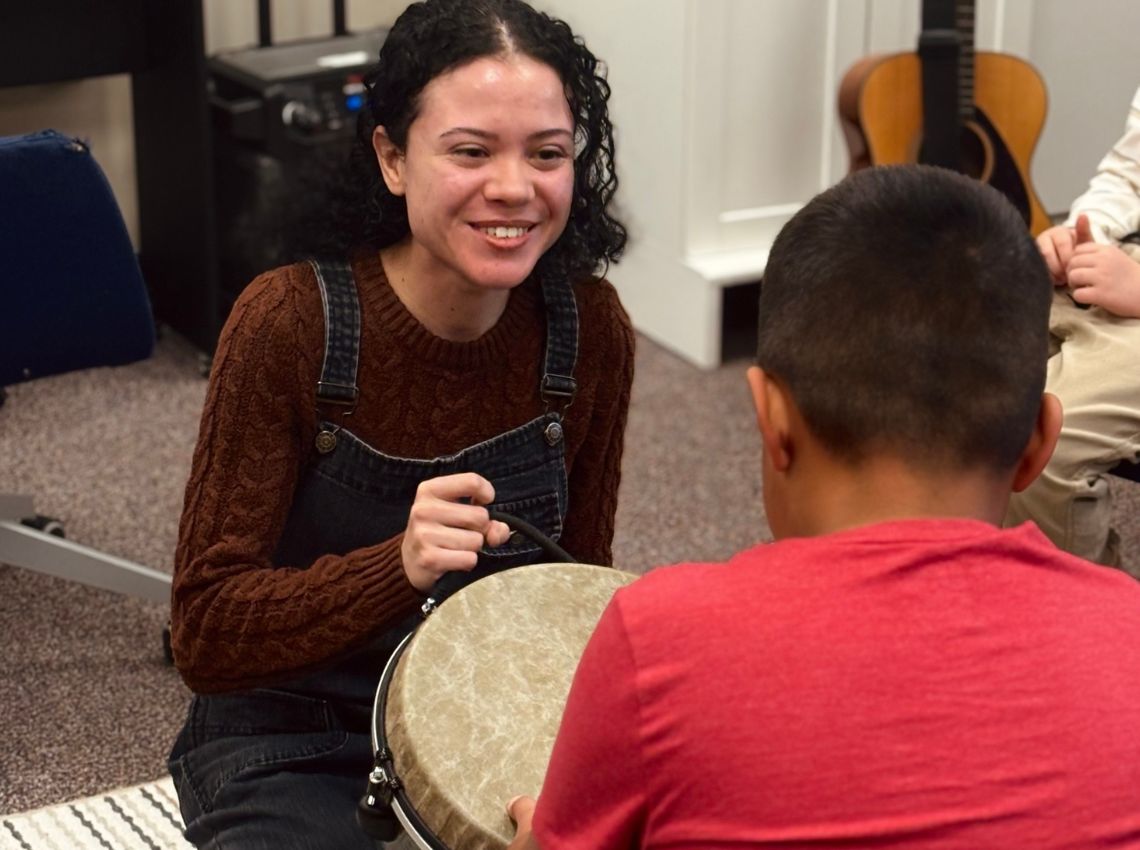
Who We Work With
Autism Spectrum Disorder (ASD) Attention-Deficit/Hyperactivity Disorder (ADHD) Down Syndrome Cerebral Palsy Intellectual Disability (mild, moderate, severe, or profound) Fragile X Syndrome Fetal Alcohol Spectrum Disorders (FASD) Prader-Willi Syndrome Williams Syndrome Rett Syndrome Angelman Syndrome Cornelia de Lange Syndrome Smith-Magenis Syndrome Rubinstein-Taybi Syndrome Global Developmental Delay Epilepsy (often co-occurring with IDD) Spina Bifida (when associated with cognitive delays) Tuberous Sclerosis Complex Neurofibromatosis (when developmental delays are present) Learning Disabilities (severe cases impacting daily functioning)

